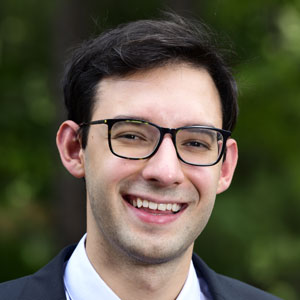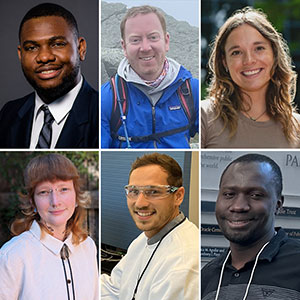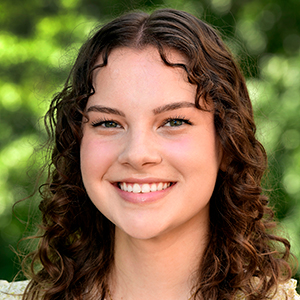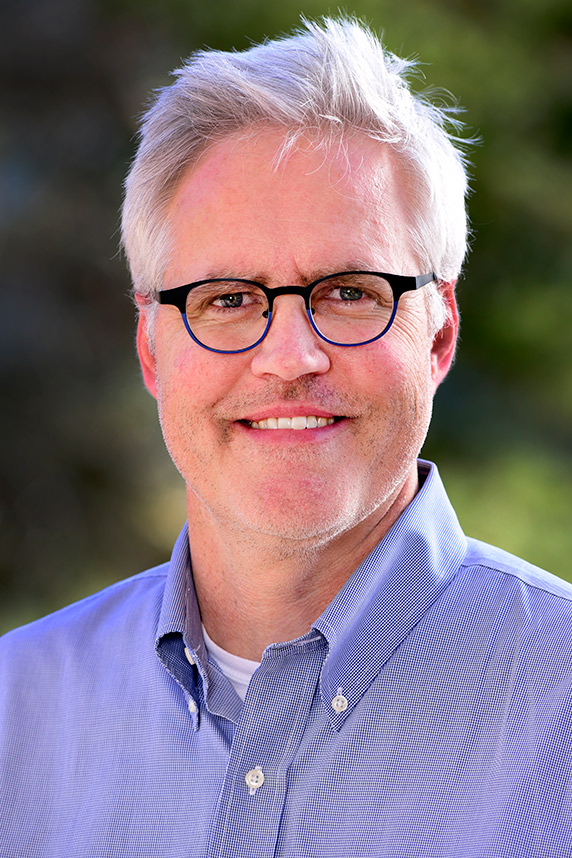 Luecke said it is remarkable how productive NIEHS scientists have been during the COVID-19 pandemic. (Photo courtesy of Steve McCaw / NIEHS)
Luecke said it is remarkable how productive NIEHS scientists have been during the COVID-19 pandemic. (Photo courtesy of Steve McCaw / NIEHS)NIEHS held its 19th Annual Science Day virtually on Nov. 19, and although oral and poster presentations (see first sidebar) were confined to numerous Zoom sessions, the online format did not diminish the quality of the research exhibition. The work of NIEHS scientific staff and trainees was nothing less than spectacular.
Much of the credit for organizing the event goes to NIEHS Associate Scientific Director Hans Luecke, Ph.D., and members of the Science Day Steering Committee (see second sidebar). The team gathered nominations for Fellow of the Year and Mentor of the Year; recruited judges from among NIEHS staff, as well as from academic and other research institutions; solicited abstracts from presenters; scheduled 10 oral presentations and 55 poster talks; and tabulated nominations and scores to come up with the winners.
“Based on the number of participants at the virtual event, which was nearly 200, NIEHS Science Day was a huge success,” said Luecke. “As always, the trainees and their research were the stars of the show.”
Presentations ran the gamut of research interests at NIEHS, such as circadian metabolism, breast cancer, sleep health, air pollution, transcriptional regulation, arsenic exposure, and more. Luecke said he was especially excited to hear about several projects that were designed to directly address SARS-CoV-2, the virus that causes COVID-19. Those presentations covered everything from basic biochemistry and diagnosis to advancing therapeutic strategies. He said NIEHS should be proud of how its scientists have responded to the COVID-19 pandemic.
Two awards, one talented trainee
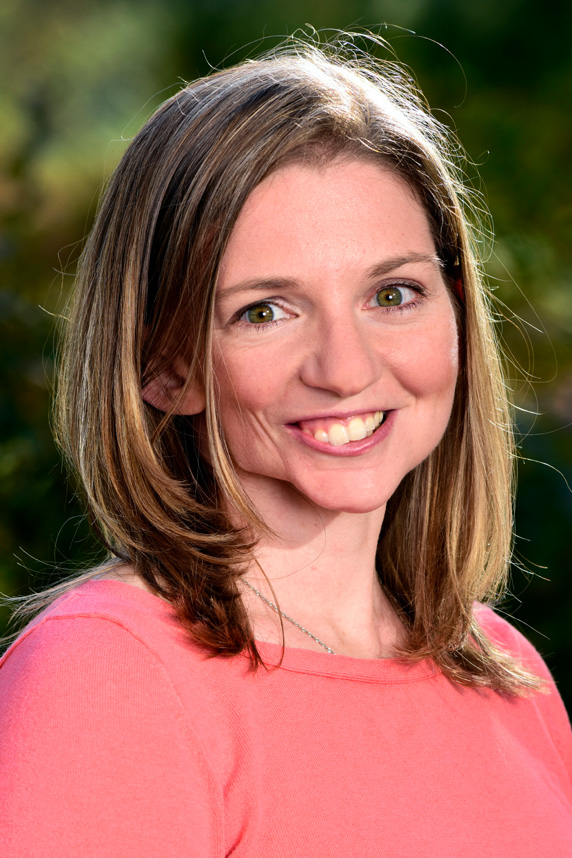 Hayne said that her scientific achievements are the result of the exceptional research training and resource-rich environment at NIEHS. (Photo courtesy of Steve McCaw / NIEHS)
Hayne said that her scientific achievements are the result of the exceptional research training and resource-rich environment at NIEHS. (Photo courtesy of Steve McCaw / NIEHS)NIEHS trainees are hardworking, accomplished, and skilled at communicating their research, but only one individual can be named Fellow of the Year at Science Day, and only one can take home Best Oral Presentation.
This year, the same person won both awards.
That individual is Cassandra Hayne, Ph.D., an Intramural Research Training Award (IRTA) postdoctoral fellow in the Nucleolar Integrity Group, which is led by Robin Stanley, Ph.D. Hayne will receive a $1,500 professional development award.
She studies the mechanism by which introns, non-coding portions of RNA, are removed from transfer RNA tRNA). tRNAs are involved in making proteins. Hayne purified the multi-subunit protein in humans that removes tRNA introns to better understand how it contributes to disease. Mutations in this protein complex cause a rare childhood neurodevelopmental and neurodegenerative disease that results in early death. To learn more about her research, see the October 2021 Environmental Factor article Three research fellows earn opportunity to grow in their careers.
Hayne said that part of her success is due to having many chances to hone her science communication skills.
“Our group dedicates lab meetings for us to practice our talks and posters and to get critical feedback on presentation styles and how to ensure that our work is engaging,” she said. “I also want to give credit to Robin [Stanley], who encourages her trainees to engage in mentorship, leadership, and service activities at NIEHS so that we’re not just siloed in the lab.”
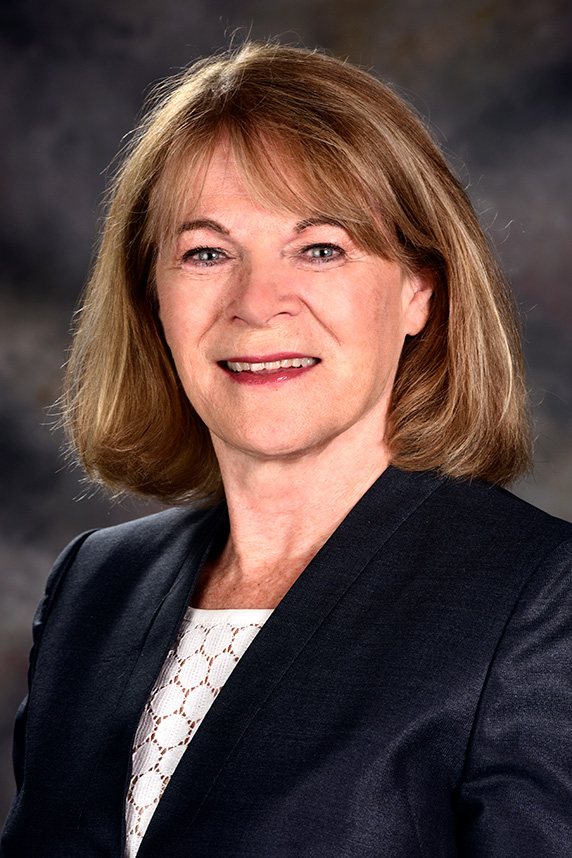 “I am now so pleased to be able to consider many of my former trainees as colleagues and friends,” said Hall. (Photo courtesy of Steve McCaw / NIEHS)
“I am now so pleased to be able to consider many of my former trainees as colleagues and friends,” said Hall. (Photo courtesy of Steve McCaw / NIEHS)The importance of mentors
The mentor-mentee relationship is crucial to preparing the next generation of scientists, and according to Skand Shekar, M.D., assistant research physician in the Reproductive Physiology and Pathophysiology Group, his mentor is the best. The 2021 Science Day Steering Committee agreed and named Janet Hall, M.D., NIEHS Clinical Director and head of Shekar’s group, Mentor of the Year.
“I was totally surprised but so honored,” said Hall. “I really love working with trainees and other staff to help them maximize their potential.”
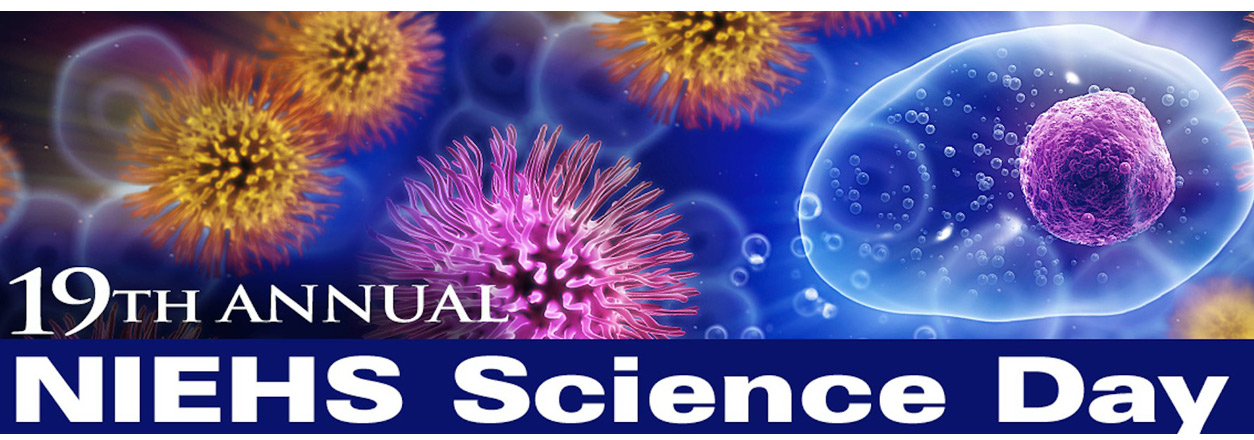
(Image courtesy of NIEHS)







